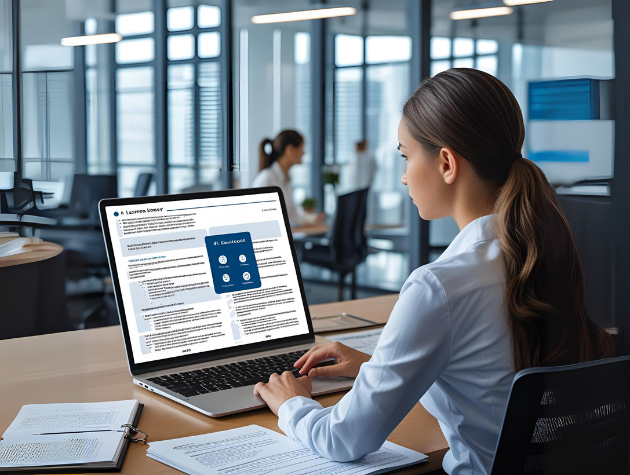Can lawyers really trust artificial intelligence to support legal work without compromising ethics or accuracy? As legal teams face mounting workloads and limited resources, ChatGPT and similar large language models (LLMs) are emerging as potential allies for in-house lawyers. But using these tools effectively—without crossing ethical lines—requires a clear strategy. So, should in-house lawyers embrace ChatGPT? If so, how?
Legal tech experts Nicki Black and Olga V. Mack offer a balanced and insightful take on this question. Both support using ChatGPT in legal settings when deployed thoughtfully and ethically. Like Google or LinkedIn, ChatGPT isn’t purpose-built for legal work. However, when understood and utilized properly, it can significantly improve efficiency, enhance communication, and support ChatGPT’s adoption by lawyers working in-house.
Watch the full conversation with Nicki Black and Olga V. Mack here:
Using ChatGPT for In-House Lawyers: Safe and Smart Applications
Nicki and Olga emphasize several low-risk applications where ChatGPT serves well for in-house lawyers, without jeopardizing client confidentiality. These include generating first drafts of non-legal correspondence, brainstorming ideas for policy language, summarizing lengthy documents, and refining tone in communications. In each of these tasks, ChatGPT can act as a capable assistant. It saves time and frees lawyers to focus on higher-value strategic work.
However, both caution that lawyers must review the output carefully. ChatGPT does not offer legal advice and can generate inaccurate or misleading responses. Professional judgment must remain at the center of every legal deliverable. This is especially true for tasks handled by in-house lawyers using ChatGPT.
Two Frameworks to Guide Safe Use
To evaluate when and how to use ChatGPT, Nicki introduces a practical framework: a risk continuum. It maps tasks from low risk—such as email drafting or newsletter creation—to high risk, like filing court documents or advising clients on legal strategy.
Olga complements this with a risk-frequency matrix, helping lawyers weigh not only how risky a task is but how often it occurs. This combined approach empowers in-house teams using ChatGPT in areas that maximize efficiency while maintaining compliance and professional standards.
The Power of Prompt Engineering
Prompt engineering plays a key role in getting the most from ChatGPT. Nicki notes that well-crafted prompts can significantly improve the accuracy and relevance of the output. Though future versions may reduce the need for prompt expertise, for now, the ability to provide detailed, structured input is a valuable skill for any legal professional using AI tools in-house.
Olga adds that prompt engineering is not just a technical skill—it’s a communication strategy. Knowing how to frame questions to AI mirrors the clarity needed when drafting legal arguments. This is important when advising clients or when in-house lawyers interact with ChatGPT.
Tech Literacy and the Paid Version Advantage
Both experts recommend that legal professionals commit to ongoing tech literacy. Attend CLEs, read legal tech publications, and experiment with tools in safe environments. This learning mindset helps legal departments stay agile and mitigate risks.
Nicki strongly advocates for the paid version of ChatGPT. It includes tools like document upload, internet browsing, and advanced data analysis capabilities. These features dramatically expand ChatGPT’s usefulness for non-sensitive legal tasks like research or internal reporting.
Ethical Adoption of ChatGPT for In-House Lawyers
The takeaway? For lawyers working in-house, exploring ChatGPT as a tool can be a game-changer—but only when used with care and context. Start with low-risk tasks, adopt a clear risk framework, build prompt fluency, and stay current on AI developments. Most importantly, never forget that AI should support—not replace—your legal judgment.
By integrating ChatGPT responsibly, in-house lawyers can increase their impact, improve responsiveness, and reclaim valuable time to focus on the work that matters most.
Watch the full conversation here: Notes to My (Legal) Self: Season 6, Episode 9 (ft.Nicki Black and Olga V. Mack)
Join the Conversation
At Notes to My (Legal) Self®, we’re dedicated to helping in-house legal professionals develop the skills, insights, and strategies needed to thrive in today’s evolving legal landscape. From leadership development to legal operations optimization and emerging technology, we provide the tools to help you stay ahead.
What’s been your biggest breakthrough moment in your legal career? Let’s talk about it—share your story.



